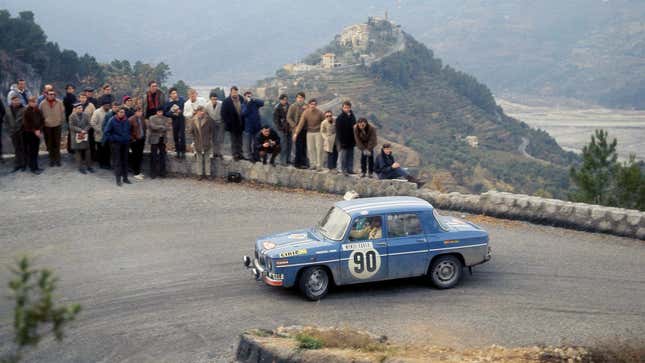
We once had an animated discussion with a group of friends about the one defining feature in one’s taste in cars. At the time, the answers ranged from a certain way of engine orientation or placement, to the drive type, or perhaps pop-up headlights, but the question kept bothering me until recently. I was sound asleep when the answer hit me like a thousand volts. Three, three is the magic number. Three-lug wheels. Some of the funkiest cars I like have three-lug wheels!
I theorized the matter further. My dream garage could simply consist of cars with no more than three lugs in their wheels. Sure, they’re almost all French or tangentially related to French cars, but that’s hardly a minus in my book. My dream garage would be properly protected from the elements, and rust and other maladies would never be able to reach the pristine weirdo specimens.
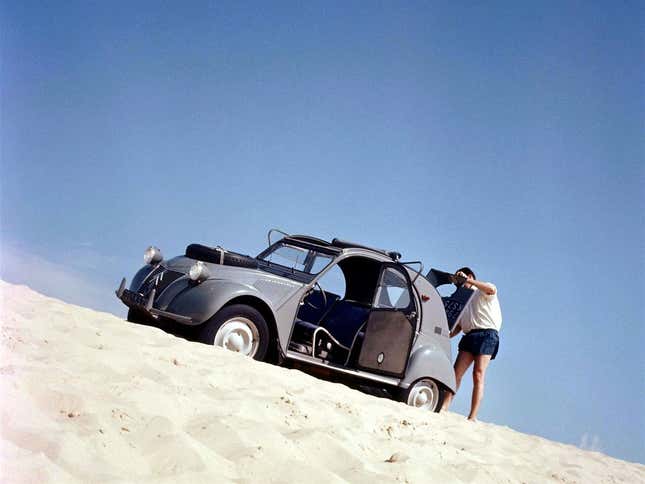
It may well be that the one three-lug car you know of is the Citroën 2CV, but there’s so much more to these tin cans. I’d like to present the 2CV Sahara here, since it features the brilliant setup of an engine in the both ends of the car and the fuel tank in the middle, under the driver’s seat and filled through the door if needed. It also gets bonus points for the spare wheel being sunk into the hood.
While bigger Citroëns ran four-lug wheels, the GS/GSA family car did with just three. Since a dream garage must have a wagon in there somewhere, the long-roof GS would have the honor of being my wagon of choice. They’re also proper Citroëns since they feature the famous hydropneumatic suspension setup.
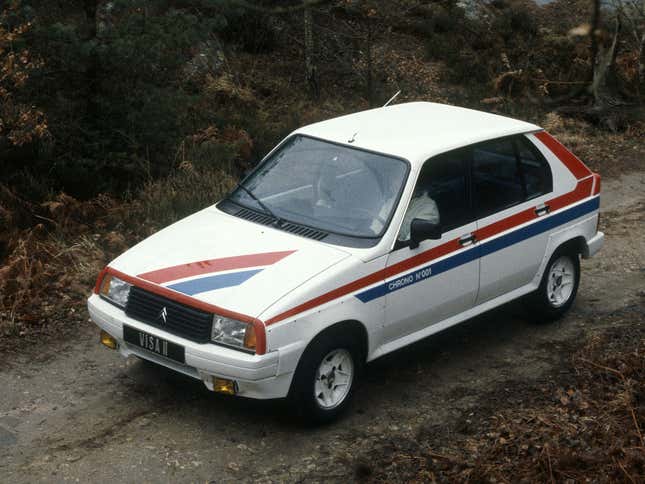
And since we’re discussing Citroëns, the company did some fantastic pocket rockets worth a mention. One of my favorite models is the Visa, which bridged the gap between the 2CV and newer cars, with the earliest versions still using the two-cylinder engine from the 2Cv.
The Visa GTi, made between 1985 and 1988 featured a four-lug setup and a 1.6-liter engine, but the more racy Chrono, Trophee and 1000 Pistes versions did with a 1360cc unit and three lugs. Make mine one of those, with the tricolor stripe job as well.
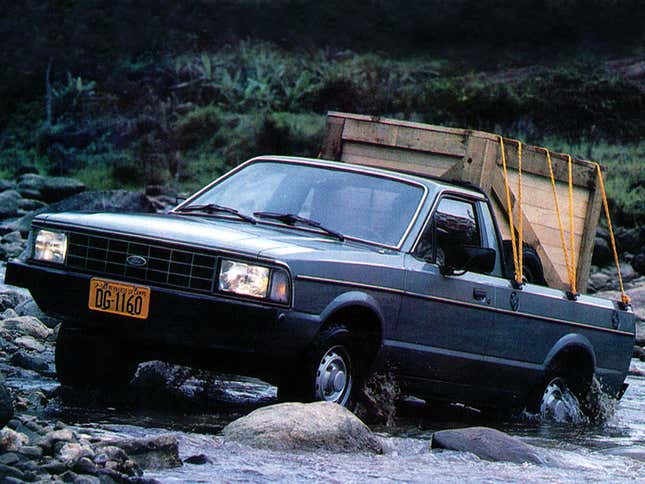
Also, if the GS wagon mentioned earlier couldn’t do all the hauling I needed, the Visa’s van development, the C15 would fit the job more than well. Or I could get a Ford Pampa, which is perhaps best described as a South American equivalent of the VW Rabbit Sportruck, but with Renault mechanicals and available four-wheel-drive. And three-lug wheels.
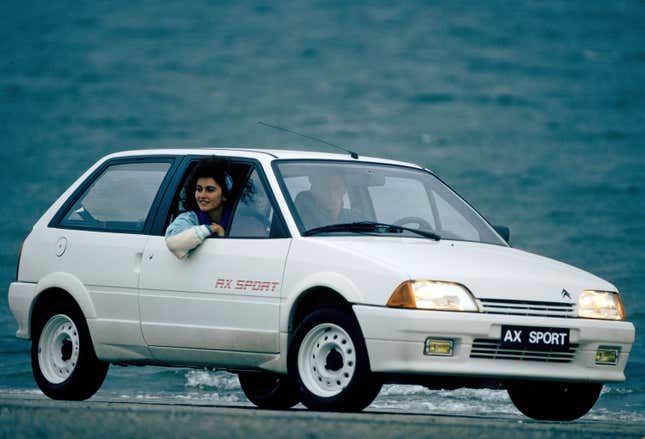
The Citroen AX, seemingly offered to buyers who found the Peugeot 205 just too substantial and well built, also needed less than four bolts in some of its most exciting models, like the Sport which corresponded to the 205 Rallye and shared the 1.3-liter engine. While the Rallye was certainly light at 1742 lbs, the AX Sport was even more lightweight at just 1576 lbs.
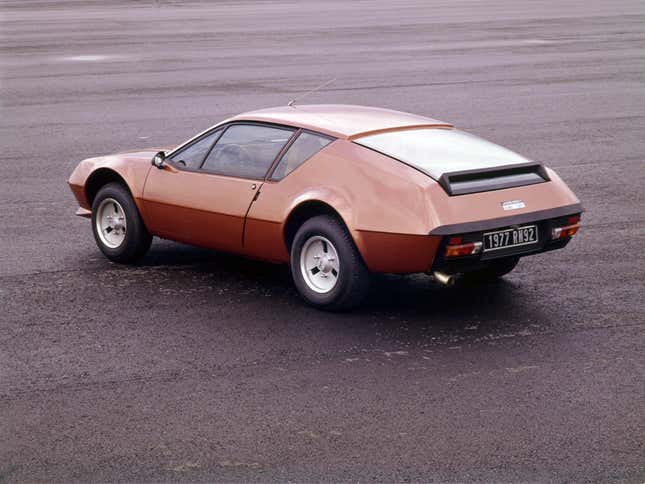
In case the cars mentioned here are too dinky or feeble for you, there’s certainly more exciting three-lug sportiness to be experienced. Take for example the Alpine A310, which was a kind of French 911 but with a plastic body, as many as six headlights and an optional PRV V6. The A310 V6 had as much as 192 horsepower – a good amount of power for a light, rear engined sports car. And the Alpine name was also slapped onto some of the more sporty versions of the Renault 5, called the 5 Alpine Turbo. Those had over twice the power of a regular LeCar, at around 110 hp. Imagine the haste!
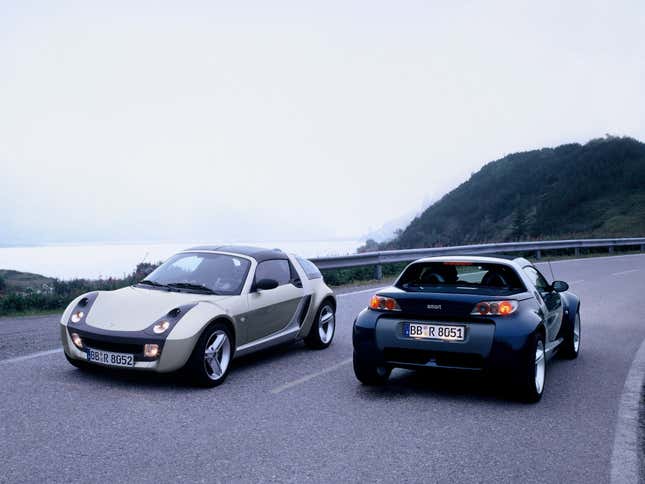
Three-lug wheels aren’t the stuff of cars from a bygone era, either. One of the most recently made cars with the setup was the Smart Roadster/Coupe, a certainly likeable car as long as you don’t think of the semi-automatic gearbox at all. I’d certainly like to have one of those plastic buckets in my dream garage.
What’s the one thing common amongst the cars you daydream about?